Display videos
Yes, I'd like to see videos dispalyed.
His first spell in Germany did not last long. The then completely unknown striker played one game for Darmstadt 98 in December 1978 before returning to South Korea to do his national service. After ending military service, Bummi returned to the Bundesliga. He signed for Eintracht Frankfurt where he won the UEFA Cup with the club in 1980 and the DFB Cup a year later.
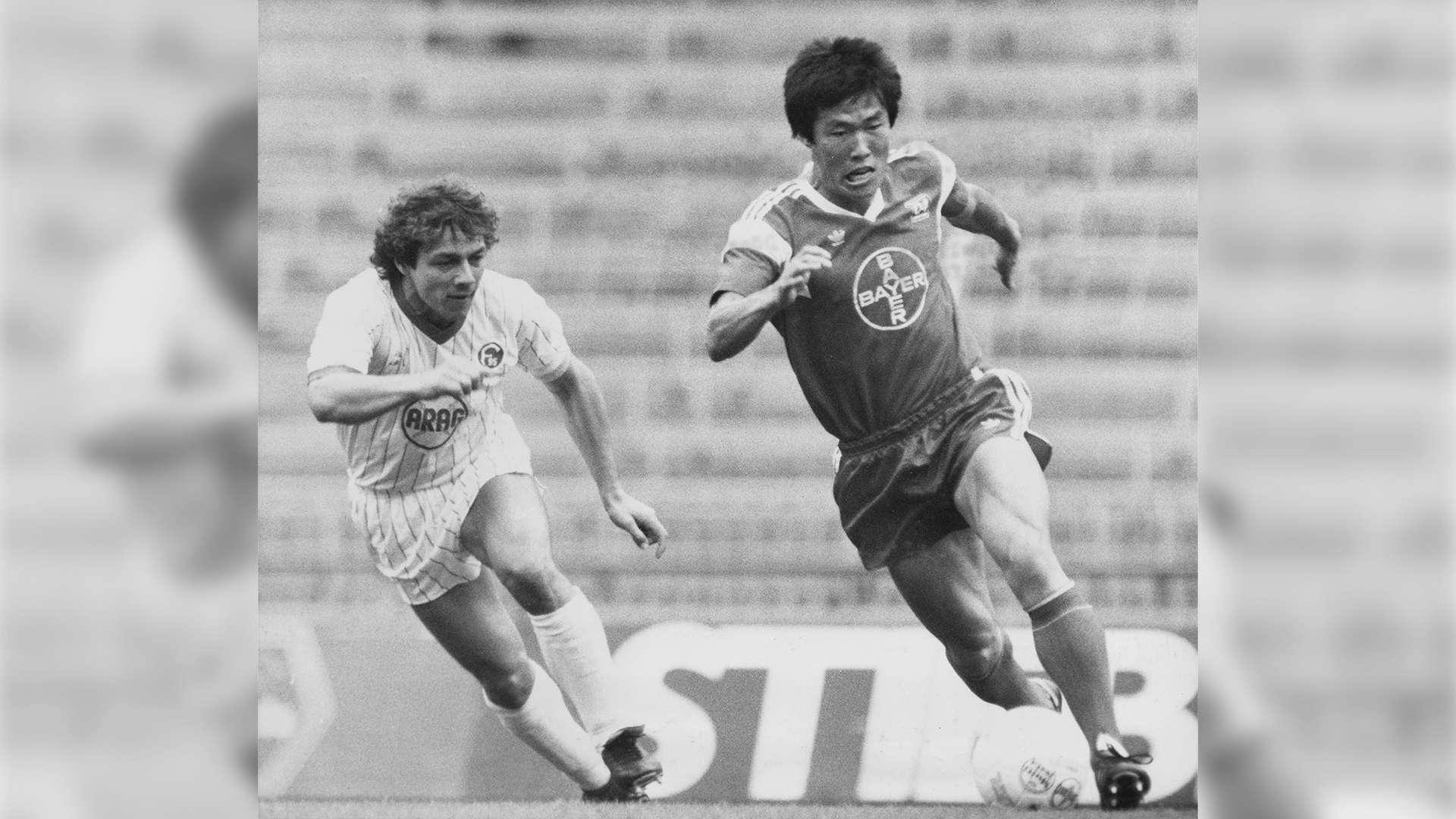

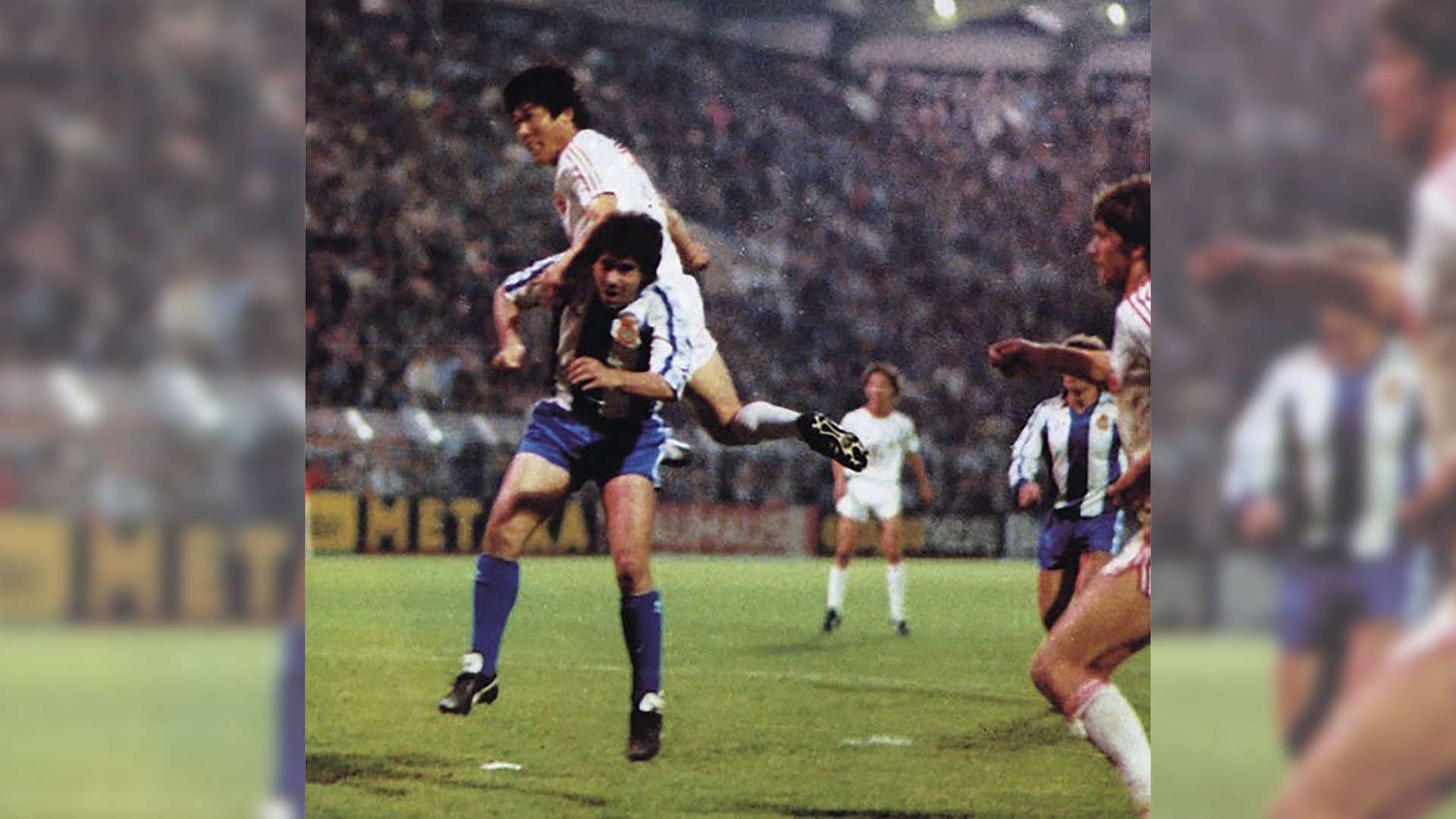

Bayer 04 stepped in when the Hessen club was forced to sell players due to financial problems. Leverkusen's coach Dettmar Cramer convinced the exceptional striker to move under the Bayer Cross and the Werkself thereby had their first world-class player in 1983. In the next six years, Bum-kun Cha made 185 Bundesliga appearances for Bayer 04 and he scored 52 goals. The South Korean formed a dangerous strike partnership with Herbert Waas, Leverkusen's first international player, and he also scored seven goals in 15 DFB Cup ties. Bummi netted his most important goal for the Black and Reds on the European stage. On 18 May 1988, playing in the second leg of the UEFA Cup final against Espanyol, he rose into the Leverkusen night air to head home a free kick from Andrzej Buncol to make it 3-0 – extra time, penalties. The first title for Bayer 04.
THE 'south korean Beckenbauer'
In his final season at Leverkusen, in 1988/89, Bum-kun Cha, gained his coaching badge and in the 1990s he coached several South Korean teams and he was also the national coach for a year in 1997. The ‘South Korean Beckenbauer’, as Cha was known due to his popularity at home, was voted Asian player of the 20th century by the Asian Football Association. He was the first South Korean player to move to Europe and he paved the way for many of his fellow countrymen. Bum-kun Cha is still a legend in Asia today. Current players like Heung-min Son show him great respect. Bum-kun Cha was awarded the Order of Merit of the Federal Republic of Germany in 2019.
The very religious father of three today lives with his wife Un-mi in Seoul. His son Du-ri also played in the Bundesliga including for Eintracht Frankfurt, SC Freiburg and Mainz 05.
Dear Bummi, many happy returns on your 70th birthday. Have a good one and stay healthy.
Related News
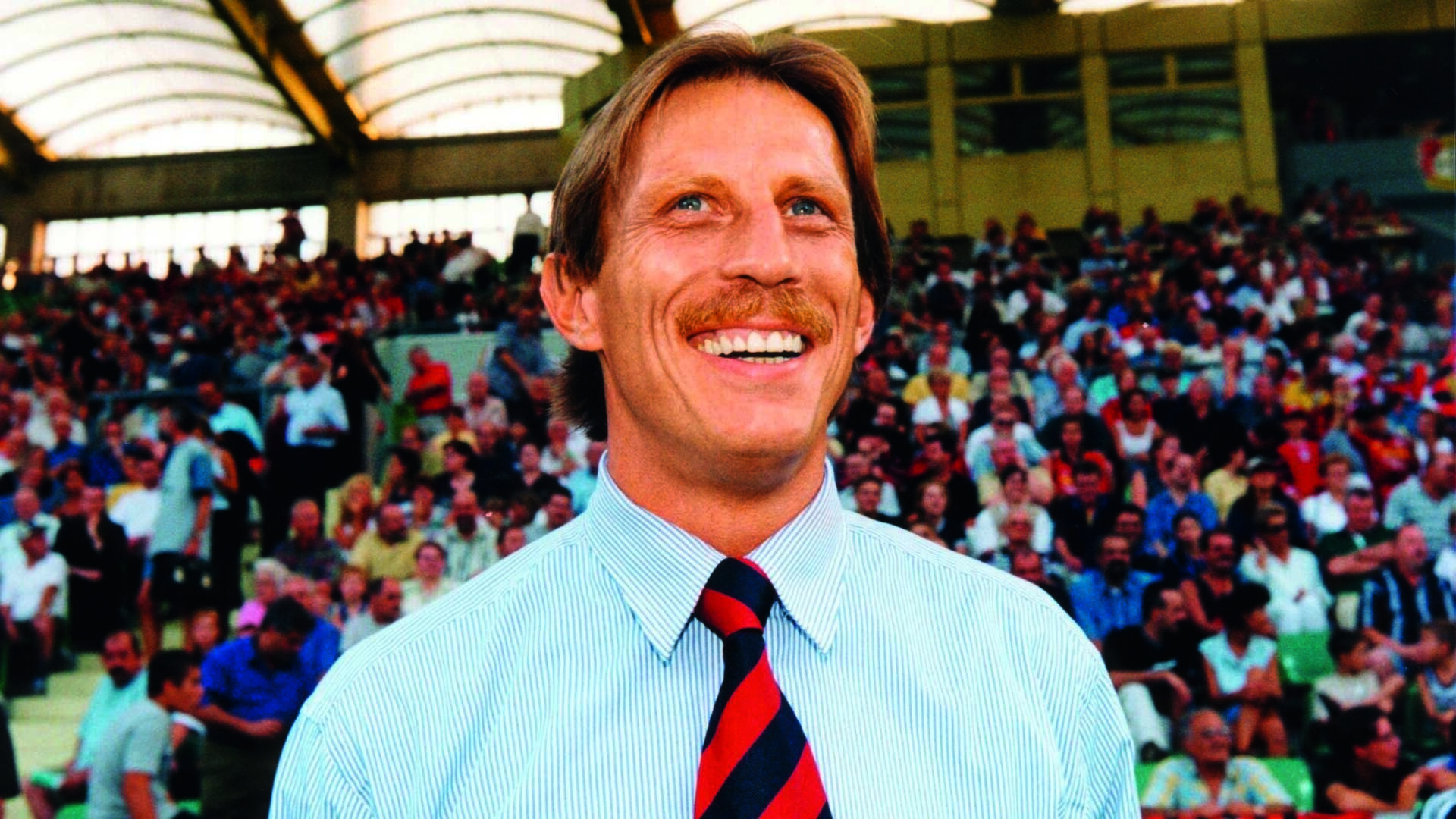
Legend: Christoph Daum - The man who taught us to want
Christoph Daum was born on 24 October 1953 in Zwickau. As a child, he moved to West Germany with his mother and grew up in Duisburg. He developed a great enthusiasm for football at an early age, even though it soon became clear that his future lay less on the pitch than on the sidelines. Even at a young age, his passion for analysing, explaining and improving things became apparent.
Show more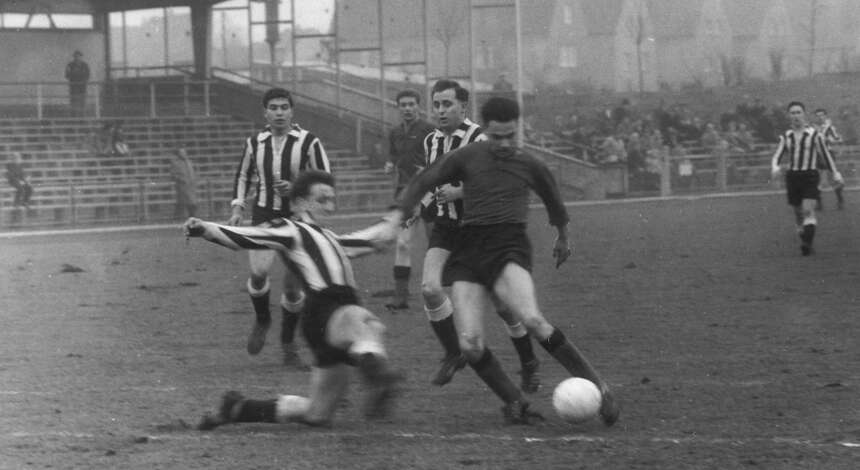
From the archives: 65 years ago - Another victory at last
When the Bayer 04 players celebrated Christmas in 1960, they spent the winter in second place in the Oberliga West 2 on 20 points - but already five points behind leaders Schwarz-Weiß Essen. However, coach Erich Garske's team are struggling to get back on track in the new year. A goalless draw against Bonner FV at home at the Ulrich Haberland Stadium was followed by a 2-1 away defeat in Erkenschwick. The following home game also yielded just one point. As a result, the team's promotion ambitions dwindled to a minimum, as the gap to the coveted spot has now grown to a challenging ten points.
Show more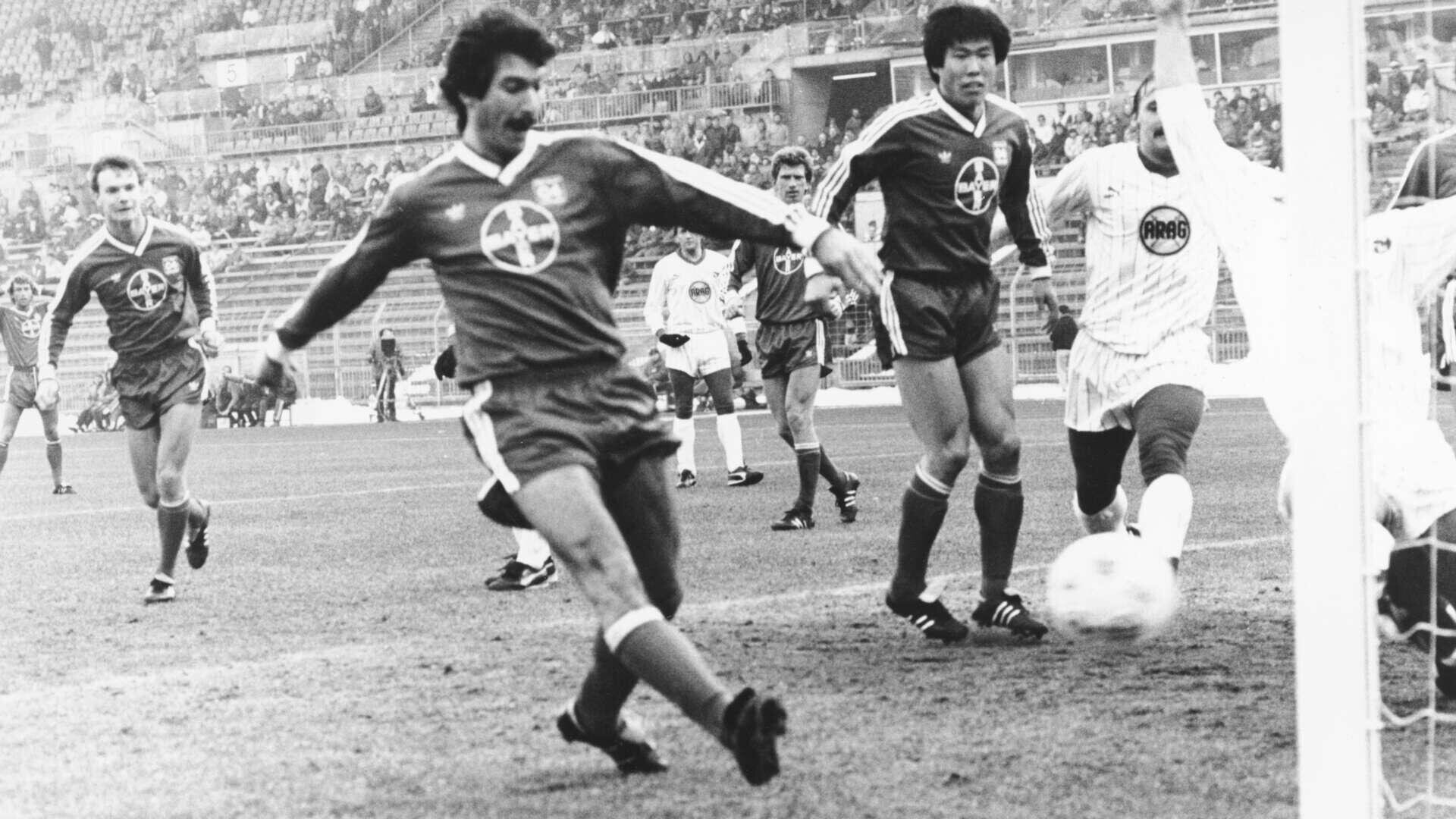
Goals of the month: From Waas to Tapsoba
In this video you can see impressive and important goals in Bayer 04 history from the month of February. It's not always about the beauty of the goals, but also a reminder of special games and players.
Show more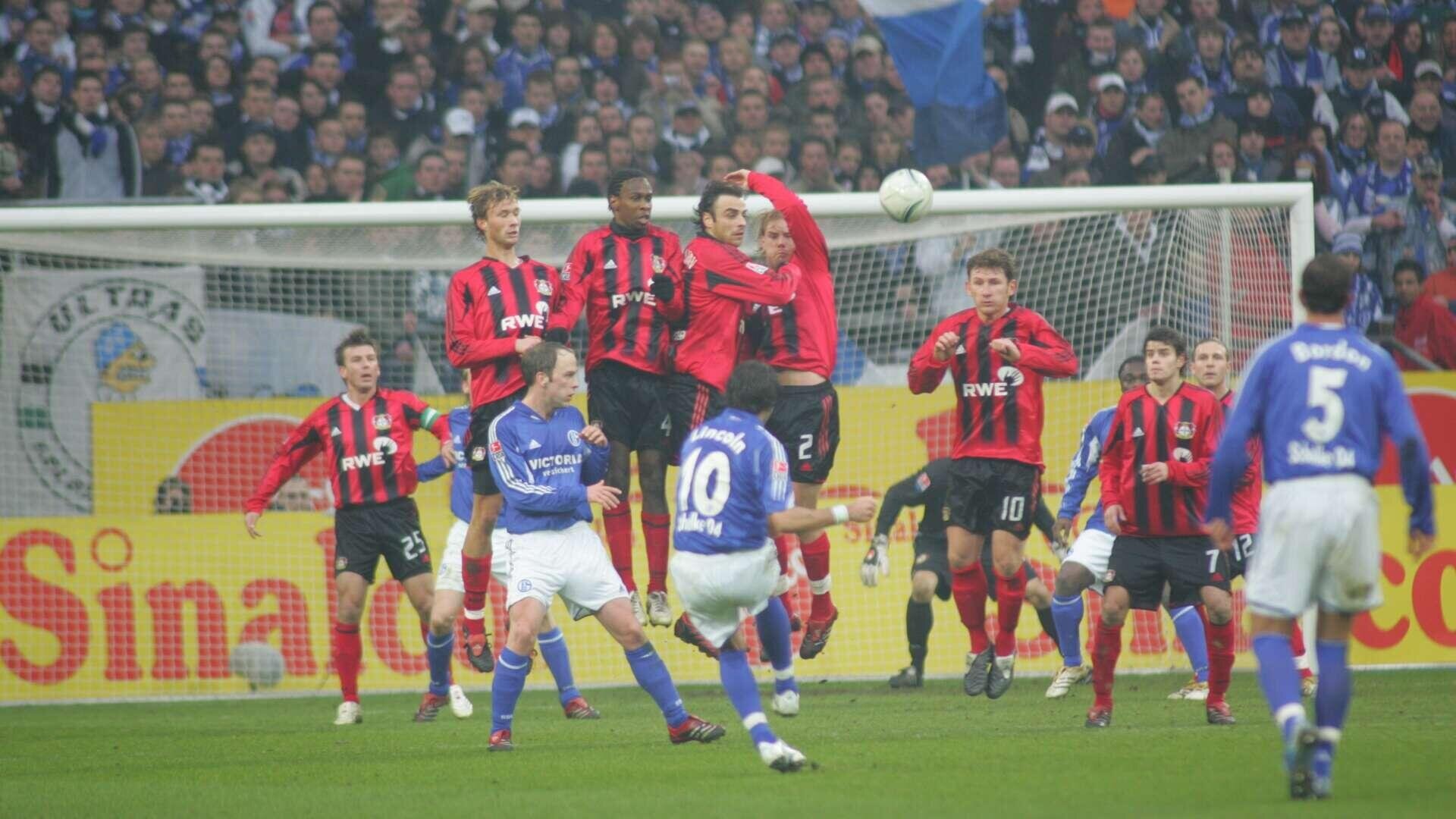
Match of the month: 20 years ago - A game of goals galore
It is 11 February 2006 and Schalke 04 and the Werkself kick off at 3.30 p.m. in a match that ends up being historic - at least from a Bayer 04 perspective.
Show more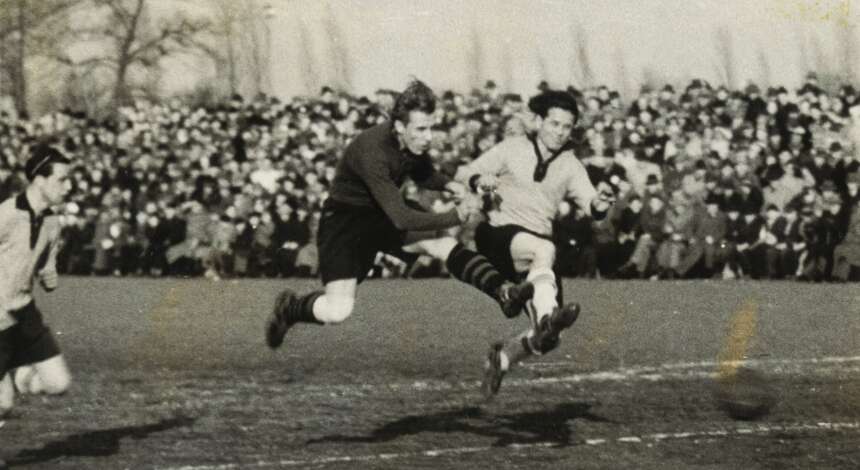
History: 75 years ago - The 1950/51 season (February)
As league leaders, the Werkself welcomed the relegation-threatened team from Rhenania Würselen. On 4 February 1951, 5,000 spectators line the touchlines despite the Sunday carnival parades. And they see a home team that is superior on the pitch. Without Theo Kirchberg, who was ill, and Emil Becks, who was suspended, the hosts attacked the opposing goal from the start. Battling against a strong wind in the first half, Bayer 04 created chance after chance, but were repeatedly thwarted by the Würselen goalkeeper. With the score at 0-0 at half-time, Karl Heinz Spikofski tried his luck on 55 minutes and hammered the ball into the opposition net from 20 metres out. Rhenania can no longer counterattack. The siege of the Würselen penalty area continued right to the end, but the game ended in a narrow 1-0 win.
Show more